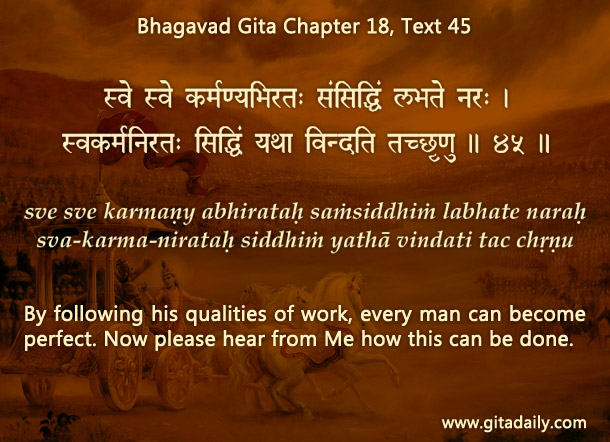
Whenever we have to make choices in life, we usually turn to two courts: the court of reason (“That makes sense”) and the court of emotion (“That feels good”).
Unfortunately, these two courts don’t easily arrive at a consensus. What makes sense doesn’t always feel good and what feels good doesn’t always make sense. For example, getting the latest cellphone may feel good, but spending that much money may not make sense.
Deferring to the court of reason may be preferable, but repressing our emotions repeatedly isn’t palatable. After all, emotions are innate to our very being and having to deny them constantly in favor of reason seems, well, unreasonable.
What is the way out?
Purification.
In our pure state as souls, parts of Krishna, our reason and emotion work in tandem. Loving and serving Krishna makes sense because it grants fulfilling and lasting satisfaction – the ultimate good feeling.
Presently however, our bodily misidentification gives rise to impurities such as greed that divorce our emotion from our reason. These two become reconciled to the extent we purify ourselves.
To aid our purification, the Bhagavad-gita (18.45) urges us to engage ourselves in devotional service according to our psychophysical nature. As we tend to do well the work that is in accordance to our nature, such occupation makes sense and also feels good. Due to this job satisfaction, we get some impetus to say no to greedy emotions even if they feel good. This impetus is further strengthened by our devotional practices. Regular scriptural study reminds us how living a Krishna-centered nature-harmonized life makes supreme sense. And diligent mantra meditation centered on remembrance of Krishna gives us foretaste of the oceanic happiness awaiting us. Thus do reason and emotion synergize and propel our journey to purification and liberation.


Srila Prabhupada said that ‘religion without philosophy is sentiment, while philosophy without religion is mental speculation.’ We naturally seek harmony in our experience with duality and when our intellect and emotions correlate with each other we are able to make a deeper connection with ourselves. But when we approach Krishna with just a tiny drop of love, He, by His unlimited mercy, completely harmonizes our knowing and feeling in His oceanic embrace of Love.